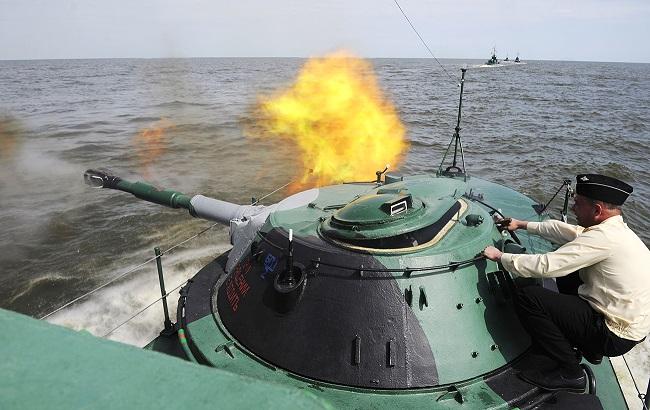
Russian President Vladimir Putin seems to love skating on thin ice. In the past he negotiated the status of the Kuril Islands – which have been an integral part of Russia for over seventy years – with Japan, and now he is suggesting that the peace talks between Moscow and Tokyo could soon resume.
By Nikola Mikovic
According to the Russian leader, the constitutional reforms do not pose an obstacle to peace talks. However, the new constitution of the Russian Federation, enacted in July 2020, includes a ban on “any alienation of Russian territories”.
"Yes, we have amended the constitution. Undoubtedly, we must take this into account, but I don’t think that peace treaty talks must be suspended”, said Putin on June 4.
In September 2020, the Kremlin chief had a phone call with Japanese Prime Minister Yoshihide Suga but no compromise for the decades-old dispute has been found. The two leaders reportedly confirmed readiness to continue negotiations on signing a peace treaty on the basis of the 1956 Soviet-Japanese Joint Declaration.
According to the document, the Soviet government was ready to hand two out of four islands to Japan. Shikotan Island and a group of small islands called Habomai would be returned to Tokyo on condition that Japan would take control of them once a peace treaty was signed. To this day, however, the two nations have not signed a peace treaty and will unlikely do that any time soon, if at all.
The four islands are variously known in Russia and Japan as either Shikotan, Habomai Islets/Khabomai, Kunashiri/Kunashir and Etorofu/Iturup. Their ownership has been challenged by Japan whose leaders claim that the Russian Federation, as the legal successor to the Soviet Union, is obliged to scrupulously observe all of past obligations, including the unfulfilled subparagraph on the territorial issue.

Russian officials, on the other hand, repeated on several occasions that Russia’s sovereignty over the Kuril Islands, which is committed to paper in international documents, “cannot be called in question”. But then why Putin expressed the readiness of his country to continue peace treaty talks with Japan?
Discussing peace treaty and signing the official document is not the same thing. Over the past ten years, Russian and Japanese officials had numerous meetings and discussed the Kuril Island dispute, as well as a possible peace treaty, but no paper was ever signed.
Thus, Moscow will likely keep publically insisting on dialogue, but it is not very probable that it will return the strategically important territory to Japan.
"We were curious about how those issues can be solved, given the plans of your allies to deploy advanced missile strike systems on the territory of Japan," Putin said, addressing the editor-in-chief of Japan’s Kyodo news agency.
Indeed, some 50.000 US troops are already stationed in Japan, and Russia fears that the United States could establish naval bases in the Kuril Islands once Moscow and Tokyo resolve their territorial dispute. Such an action would have an impact on Russia’s access to the Pacific, and would be seen as another Russian geopolitical defeat.
Moscow is also concerned about the US potentially basing intermediate-range missiles in Japan, since Tokyo is considered the first candidate for the placement of the US land-based cruise or ballistic missiles with a range of 500 to 5500 kilometers.
In spite of that, Putin keeps saying that Russia and Japan are “natural partners”, even though Tokyo refers to the islands as the Northern Territories, and does not recognize Russia’s jurisdiction over the disputed region.
Such a rhetoric is not strange, given that the Kremlin officials also call Ukraine “a brotherly country”, but yet refuse to return Crimea and the Donbass to Kiev. Those territories, as well as the Kuril Islands, are too important for the Kremlin, and will unlikely be returned to Ukraine and Japan, unless Russia is eventually faced with mayhem followed by economic collapse.
In the meantime, the Kremlin is expected to keep simulating peace talks, creating an illusion that a “fair deal” is possible. In reality, the current Russia’s policy regarding the Kuril Island is “incompatible with Tokyo’s position on the territory.
If Moscow, for whatever reason, eventually agrees to return even one square meter of Russian territory to Japan, such a decision will pave the way for the break-up of the Russian Federation.
Nikola Mikovic is a Serbian journalist and a senior Geopolitical Analyst he publishes often for The Levant News.






